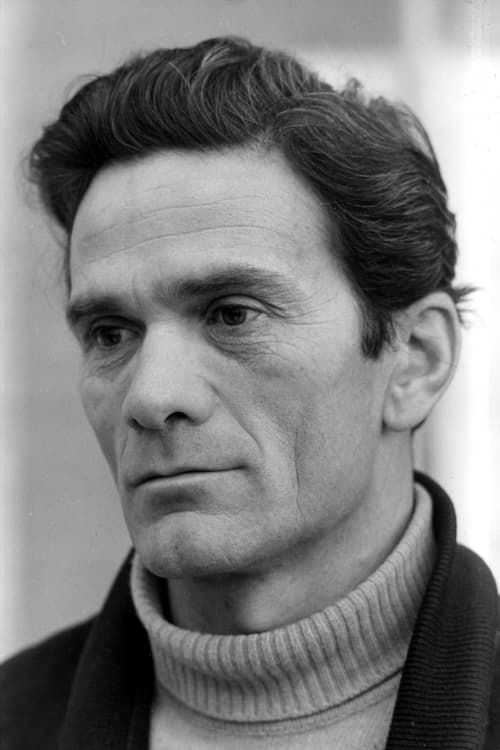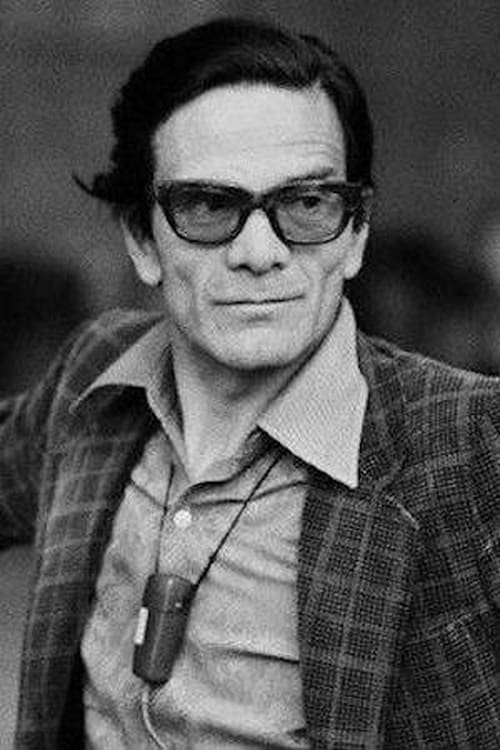
Himself
A 16 mm film recovered from the French director's boxes, with images of Varda, Pasolini and New York. Pasolini is shown walking in the Big Apple (where he went to present 'Hawks and Sparrows').
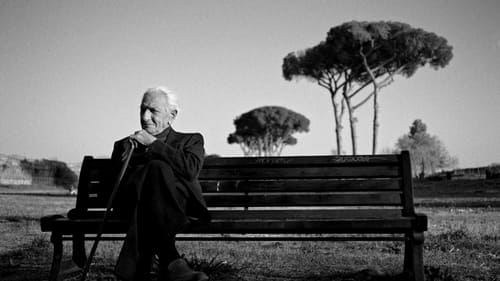
Self - Filmmaker (archive footage)
The life of the legendary Italian photojournalist Paolo Di Paolo through his photographs, which capture the essence of a fascinating and turbulent Italy, the one inhabited by Anna Magnani and Pier Paolo Pasolini, a country that no longer exists.

3,700 km of coastline, a Fiat 1100, and an old travel diary, those are the ingredients for Pepe Danquart’s documentary. Following the footsteps of the great Italian thinker Pier Paolo Pasolini, the filmmaker gains a deep insight into the social reality of present-day Italy. The country is massively affected by globalization, migration and the phenomenon of mass tourism, which, more than ever, is characterised by the same hedonistic conformity that Pasolini lamented more than fifty years ago. Ahead of me the South is a poetic contemporary document, a kaleidoscopic picture of the Italy of today.
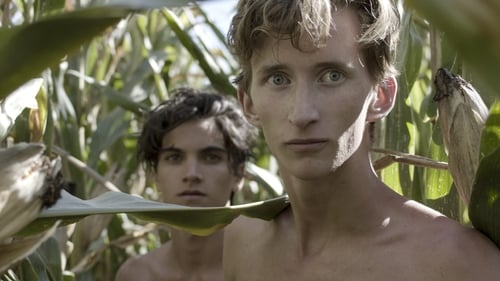
Self (archive footage) (uncredited)
A unique chance to explore Pier Paolo Pasolini's youth through the voice and the body of his direct cousin, writer and poet Nico Naldini.
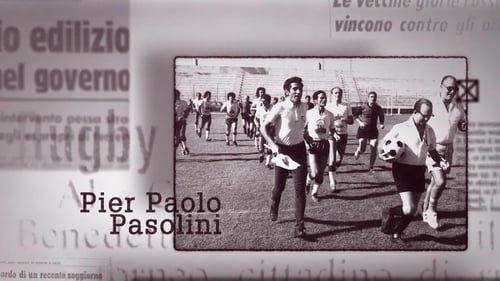
On September 14, 1975, Pier Paolo Pasolini played his last game of football, before his death, in San Benedetto del Tronto. “The last match of Pasolini” starts from a pretext of a football game, to tell a historical period that was fundamental for the whole of Italy, with its contradictions and tragedies, through an apparently playful vision of Pasolini, but that allows us to understand better the importance of the Italian poet and director.
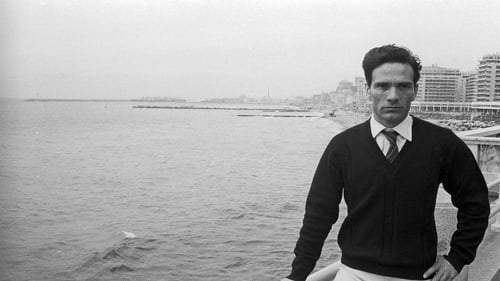
Himself (archive footage)
In the summer of 1959, as a correspondent for “Successo” magazine, Pasolini traveled along the Italian coast. In 1963, he documented Italian sex behavior, explained in “Love Meetings,” a 1964 film. In the winter of 1970-71, he witnessed the plight of the most impoverished Italian population and the innocents who suffered the boot of state power. After these three journeys, he concluded that Italian society had changed dramatically for the worse throughout all those years.


A documentary that recounts the impressively lucid visions and gazes with which Pasolini described and experienced the lands from his Casarsa eastward, through Idria, the Grado lagoon and finally Istria. The border, understood as a physical, historical and geographic but also metaphorical limit, is an interesting key to recount Pasolini's life: a journey that allows us to tell some lesser-known sides of the life of a great intellectual of the last century, who with keen anticipation glimpsed profound truths about the cultural and social changes taking place.

Interactive documentary about Pier Paolo Pasolini.

Se stesso
A journey back through Dacia Maraini's and her trips around the world with her close friends cinema director Pier Paolo Pasolini and opera singer Maria Callas. An in-depth story of this fascinating woman's life. Maraini's memories come alive through personal photographs taken on the road as well as her own Super 8 films shot almost thirty years ago.

Self (archive)
This elegiac essay explores the year leading up to Pier Paolo Pasolini's murder in 1975. Through staging scenes from his last, unfinished novel, to exploring his polemical essays, and his first and last film, this experimental biography documents the final words of one of the most important filmmakers of the 20th century.

Editor
An attempt to reconstruct the complete version of Pier Paolo Pasolini's segment of La rabbia.

Writer
An attempt to reconstruct the complete version of Pier Paolo Pasolini's segment of La rabbia.

Self (archive footage)
An attempt to reconstruct the complete version of Pier Paolo Pasolini's segment of La rabbia.

Director
An attempt to reconstruct the complete version of Pier Paolo Pasolini's segment of La rabbia.

Self (archive footage)
Based upon Vincenzoni's biography, "Pane e cinema", the documentary traces the story of the screen play writer who invented many stories that became blockbusters throughout the world.

The story of La Rabbia by Pier Paolo Pasolini and Giovanni Guareschi, a movie lost in the archives of a laboratory in Rome, and recently re-discovered.

Self (archive footage)
This revealing documentary from director Philippe Kohly examines the storied life of renowned soprano Maria Callas, from her troubled childhood in New York City to her scandal-laden but triumphant international career in opera. Featuring archival interviews with Callas herself and footage of contemporaries such as her lover Aristotle Onassis, this celebration of "La Divina" pays tribute to her enduring legacy some three decades after her death.
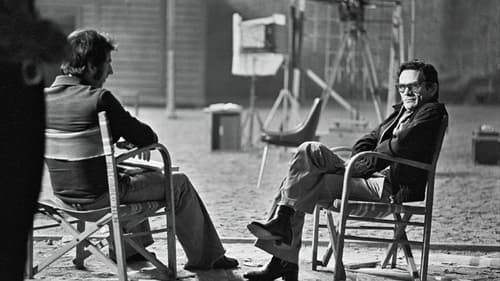
Se stesso
We are on the set of "Salò or the 120 days of Sodom". Pasolini lets a small camera team led by the journalist Gideon Bachmann follow him around engaging him in a long and extraordinary interview/conversation. The interview turns into a long, clear-sighted and violent attack on society that accompanies photos of the set in a surprising juxtaposition of film and reality, revealing Pasolini's metaphorical portrait of modernity.

Interviewee (archive)
Documentary about the making of Pier Paolo Pasolini's The Canterbury Tales (1972), and particularly focusing on the many edits and cut scenes that were made before the film's release.

A sequence of unpublished photographs by Deborah Beer taken during the filming of the torture scenes on the set of "Salo, or the 120 Days of Sodom" is accompanied by the voice - recorded by Gideon Bachmann - of Pier Paolo Pasolini who directs the actors: a portrait of the director and his way of working that testifies its determined and passionate “filmmaking"

Interviewee
A documentary featuring archival footage of Pasolini discussing his views on language, film, and modern society.

Some of the scenes cut from the final editing of Medea by Pier Paolo Pasolini, fortunately found by L’Officina - a historic Roman film club born in the 1970s - on the initiative of Cinemazero in Pordenone have been preserved and digitized at the Cineteca del Friuli. These materials, with the care of the Pasolini scholar Luciano De Giusti, have been reassembled, accompanied by texts / readings and original music by Paolo Corberi: here are the "Visions of the Medea (traces of a dreamed film)", now a very important document to reconstruct the creative process of production and reliving the poetic / lyrical aura of the film's protagonists and places, including the lagoon of Grado (GO).

A thirty-three-minute documentary featuring interviews with director Pier Paolo Pasolini, actor-filmmaker Jean-Claude Biette, and Pasolini friend Ninetto Davoli.

Self (archive footage)
It is a chronological compilation of film clips, awards ceremonies and brief period interviews gathered by journalist Sandro Lai.

Archive footage

Self (archive footage)
Federico Fellini was one of the most individual and thought provoking directors who based most of his films upon his own reflections, dreams, life events and fantasies, who did not convey any special message for humanity but regarded cinema simply as entertainment. Is there an answer to everything? Can it possibly be? If yes, then life can no longer be so curious, so dynamic, so creative...

Book
Adapted from an autobiographical book by Pier Paolo Pasolini.

Himself
A documentary about the Italian cinema as art form and industry.

Short Story
Fausto and Gilda who are married for a long time and love themselves deeply. But Gilda dies leaving Fausto alone with their 8-year-old daughter and a governess. Being shaken, he retreats to his country house. His female doctor is the only one who visits him. He starts being plagued every night by wet dreams, visions and hallucinations of some women and his wife, who insistently asks him to join him. After some time, Fausto can't distinguish any longer what is reality or dream.

Screenplay

Self (archive footage)
Traces the life of Anna Magnani, her creations, her successes, her triumphs, her boycotted career, her nonconformism, her anxieties, her generosity ... Punctuated with photos that tell her career in theater and cinema, Extracts of films, this documentary portrait also gives the floor to his friends and relatives, from Roberto Rossellini to Marcello Mastroianni, through Federico Fellini.

Lui-même

Director
Экранизируя роман маркиза де Сада, Пазолини переносит действие в 1944-45-е годы, в фашистскую «республику Сало» на севере Италии, где группа лиц из высшего общества во главе с принцем унижает, издевается, мучает, пытает юношей и девушек, собранных для услаждения извращённой элиты, чувствующей свою погибель. Четыре месяца длится эта экзекуция. Для взрослых это последняя возможность удовлетворить свои низменные инстинкты, для молодых людей — расплата за свою юность и желание жить.

Writer
Экранизируя роман маркиза де Сада, Пазолини переносит действие в 1944-45-е годы, в фашистскую «республику Сало» на севере Италии, где группа лиц из высшего общества во главе с принцем унижает, издевается, мучает, пытает юношей и девушек, собранных для услаждения извращённой элиты, чувствующей свою погибель. Четыре месяца длится эта экзекуция. Для взрослых это последняя возможность удовлетворить свои низменные инстинкты, для молодых людей — расплата за свою юность и желание жить.
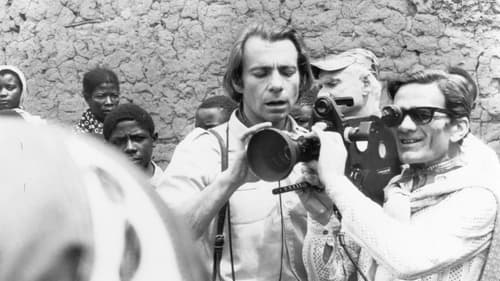
Self (uncredited)
The director presents takes and scenes filmed on location in Africa for a film-that-never-was, a black Oresteia.

Editor
The director presents takes and scenes filmed on location in Africa for a film-that-never-was, a black Oresteia.

Writer
The director presents takes and scenes filmed on location in Africa for a film-that-never-was, a black Oresteia.

Director
The director presents takes and scenes filmed on location in Africa for a film-that-never-was, a black Oresteia.

Writer
Короткая зарисовка Пьера Паоло Пазолини о Йемене, мало популярном у туристов, его удивительной столице Сане. Призыв к ООН и современникам сохранить его.

Narrator (voice)
Короткая зарисовка Пьера Паоло Пазолини о Йемене, мало популярном у туристов, его удивительной столице Сане. Призыв к ООН и современникам сохранить его.

Director
Короткая зарисовка Пьера Паоло Пазолини о Йемене, мало популярном у туристов, его удивительной столице Сане. Призыв к ООН и современникам сохранить его.

Writer
Толпа насмехалась и издевалась над несчастным башмачником до тех пор, пока какой-то купец, ехавший на коне, не разогнал ее. Он крикнул: «Эй вы, стыдитесь! Чужеземец — наш гость, а вы попираете священные законы гостеприимства…»

Director
Толпа насмехалась и издевалась над несчастным башмачником до тех пор, пока какой-то купец, ехавший на коне, не разогнал ее. Он крикнул: «Эй вы, стыдитесь! Чужеземец — наш гость, а вы попираете священные законы гостеприимства…»

Himself
Documentary about the Italian cities Orte and Sabaudia.
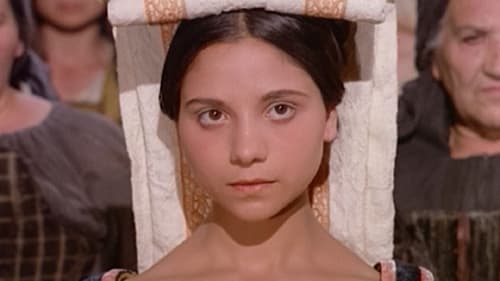
Writer
Locked up in prison and awaiting execution, bored young vagabonds Bernardino and Mammone pass their time competing in a vulgar storytelling competition, relating indecent accounts about castration, unsavory testicles and an atypical threesome. Not intended for the faint of heart, this audacious piece of moviemaking focuses on tales of jealousy, murder and uncontrollable desires.
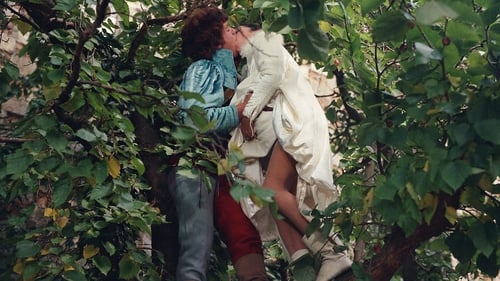
Music Supervisor
Действие картины развивается в средневековой Англии на постоялом дворе. В этом фильме режиссер сыграл роль Чосера, который является одним из слушателей четырех новелл, рассказанных путниками. Все новеллы картины пропитаны духом сладострастья и эротики, простотой нравов и юмором средневековой Англии.

Screenplay
Действие картины развивается в средневековой Англии на постоялом дворе. В этом фильме режиссер сыграл роль Чосера, который является одним из слушателей четырех новелл, рассказанных путниками. Все новеллы картины пропитаны духом сладострастья и эротики, простотой нравов и юмором средневековой Англии.

Geoffrey Chaucer
Действие картины развивается в средневековой Англии на постоялом дворе. В этом фильме режиссер сыграл роль Чосера, который является одним из слушателей четырех новелл, рассказанных путниками. Все новеллы картины пропитаны духом сладострастья и эротики, простотой нравов и юмором средневековой Англии.

Director
Действие картины развивается в средневековой Англии на постоялом дворе. В этом фильме режиссер сыграл роль Чосера, который является одним из слушателей четырех новелл, рассказанных путниками. Все новеллы картины пропитаны духом сладострастья и эротики, простотой нравов и юмором средневековой Англии.

In this movie, director Volker Koch wants to reveal "petty-bourgeois fixations of consciousness and late capitalist myths of happiness". The protagonists: an American hustler, a drama student, a Munich waitress and her boyfriend who hope for money, a career and luck from a trip to Rome together.
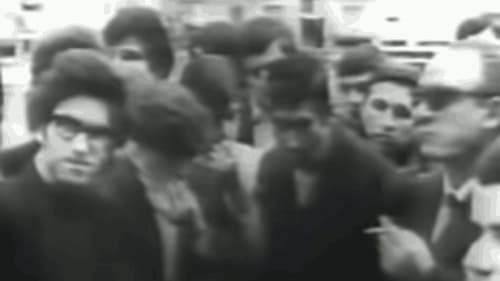
Director
On December 12th, 1969 a bomb went off at the Piazza Fontana in Milan that killed 16 people and injured 84. Railway worker and anarchist activist Giuseppe Pinelli was picked up, along with other anarchists, for questioning regarding the attack. He was held and interrogated for three days, longer than Italian law specified that people could be held without seeing a judge. Just before midnight on December 15, 1969 Pinelli was seen to fall to his death from a fourth floor window of the Milan police station. Although officially deemed a suicide, the reporter who watched the fall from the street maintained that he was pushed. Three police officers interrogating Pinelli were put under investigation in 1971 for murder but charges were dropped because of lack of evidence.

Idea
On December 12th, 1969 a bomb went off at the Piazza Fontana in Milan that killed 16 people and injured 84. Railway worker and anarchist activist Giuseppe Pinelli was picked up, along with other anarchists, for questioning regarding the attack. He was held and interrogated for three days, longer than Italian law specified that people could be held without seeing a judge. Just before midnight on December 15, 1969 Pinelli was seen to fall to his death from a fourth floor window of the Milan police station. Although officially deemed a suicide, the reporter who watched the fall from the street maintained that he was pushed. Three police officers interrogating Pinelli were put under investigation in 1971 for murder but charges were dropped because of lack of evidence.
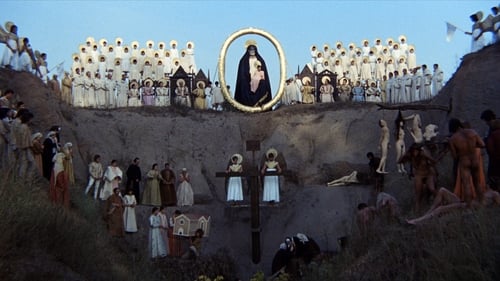
Allievo di Giotto
Художник Джотто странствует по дорогам Италии эпохи зарождающегося Ренессанса в поисках гармонии и истины Джотто становится свидетелем самых разных жизненных историй и жадно вбирает в себя во впечатления от изменяющейся, многоликой реальности. Эта реальность — веселая или печальная, суровая или фривольная наполнена мощной стихией любви и жажды жизни, торжествующих вопреки многовековым предрассудкам и запретам.

Writer
Художник Джотто странствует по дорогам Италии эпохи зарождающегося Ренессанса в поисках гармонии и истины Джотто становится свидетелем самых разных жизненных историй и жадно вбирает в себя во впечатления от изменяющейся, многоликой реальности. Эта реальность — веселая или печальная, суровая или фривольная наполнена мощной стихией любви и жажды жизни, торжествующих вопреки многовековым предрассудкам и запретам.

Director
Художник Джотто странствует по дорогам Италии эпохи зарождающегося Ренессанса в поисках гармонии и истины Джотто становится свидетелем самых разных жизненных историй и жадно вбирает в себя во впечатления от изменяющейся, многоликой реальности. Эта реальность — веселая или печальная, суровая или фривольная наполнена мощной стихией любви и жажды жизни, торжествующих вопреки многовековым предрассудкам и запретам.
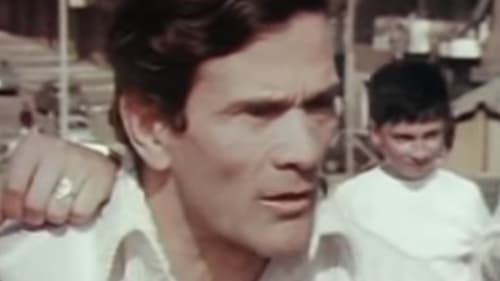
Documentary about Italian movie director Pier Paolo Pasolini, with interviews with some of his actors and friends.
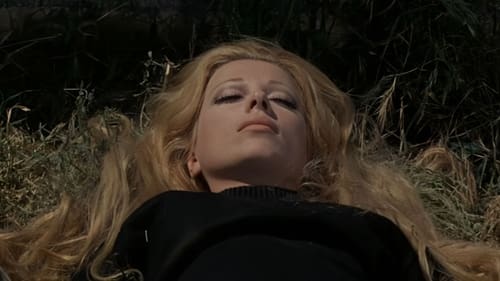
Supervising Technical Director
Two anarchistic brothers live by petty thievery and try to recover from their Catholic upbringing. Bandiera and Rabbino were children when they pushed their drunk of a father out of a window for killing their pet sheep. When a girl is raped by her father, she is brought by young "rescuers" to the home of the two brothers who then watch their friends take advantage of her sexually. The brothers take her in, and the three live happy and celibate if not uneventful lives until the brother's are sent to jail for stealing.

Screenplay
Two anarchistic brothers live by petty thievery and try to recover from their Catholic upbringing. Bandiera and Rabbino were children when they pushed their drunk of a father out of a window for killing their pet sheep. When a girl is raped by her father, she is brought by young "rescuers" to the home of the two brothers who then watch their friends take advantage of her sexually. The brothers take her in, and the three live happy and celibate if not uneventful lives until the brother's are sent to jail for stealing.

Story
Two anarchistic brothers live by petty thievery and try to recover from their Catholic upbringing. Bandiera and Rabbino were children when they pushed their drunk of a father out of a window for killing their pet sheep. When a girl is raped by her father, she is brought by young "rescuers" to the home of the two brothers who then watch their friends take advantage of her sexually. The brothers take her in, and the three live happy and celibate if not uneventful lives until the brother's are sent to jail for stealing.

Writer
В фильме мало места уделено «затертому» сюжету об «аргонавтах», можно сказать упоминается об этом вскользь. Причем аргонавты показаны отнюдь не романтично героически, а скорее напоминают наемников-мародеров. Большая же часть фильма посвящена второй половине жизни Медеи и Ясона: встреча, любовь и расставание. Брошенная, и даже изгнанная Медея не может простить коварства своего бывшего возлюбленного, променявшего ее ради свадьбы с Глоцией, дочерью короля Креона. Она начинает мщение с помощью своих магических чар.

Director
В фильме мало места уделено «затертому» сюжету об «аргонавтах», можно сказать упоминается об этом вскользь. Причем аргонавты показаны отнюдь не романтично героически, а скорее напоминают наемников-мародеров. Большая же часть фильма посвящена второй половине жизни Медеи и Ясона: встреча, любовь и расставание. Брошенная, и даже изгнанная Медея не может простить коварства своего бывшего возлюбленного, променявшего ее ради свадьбы с Глоцией, дочерью короля Креона. Она начинает мщение с помощью своих магических чар.
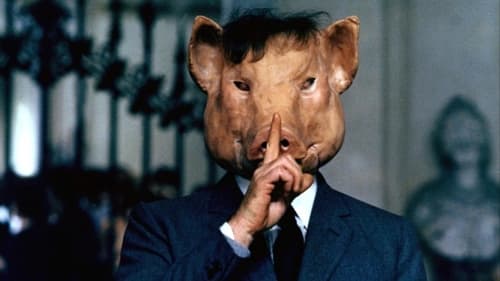
Writer
В фильме два параллельных сюжета. Первый происходит в наше время. Юлиан (Жан-Пьер Лео), сын богатого немецкого промышленника Клотца из Рура (Альберто Лионелло), испытывает патологическое влечение к свиньям. Они оказываются для него намного более привлекательными, чем его невеста Ида (Анна Вяземски). В конце концов свиньи съедают скотоложца. Второй сюжет происходит в «таинственной мифической пустыне, неведомо когда и где.

Director
В фильме два параллельных сюжета. Первый происходит в наше время. Юлиан (Жан-Пьер Лео), сын богатого немецкого промышленника Клотца из Рура (Альберто Лионелло), испытывает патологическое влечение к свиньям. Они оказываются для него намного более привлекательными, чем его невеста Ида (Анна Вяземски). В конце концов свиньи съедают скотоложца. Второй сюжет происходит в «таинственной мифической пустыне, неведомо когда и где.

Screenplay
A beautiful smiling guy's walking on the streets of a city, bringing with him a large paper poppy. The boy is the goodness and innocence of youth, which is soon cut short by human wickedness.

Director
A beautiful smiling guy's walking on the streets of a city, bringing with him a large paper poppy. The boy is the goodness and innocence of youth, which is soon cut short by human wickedness.

Screenplay
A beautiful smiling guy's walking on the streets of a city, bringing with him a large paper poppy. The boy is the goodness and innocence of youth, which is soon cut short by human wickedness. Indeed, while the merry boy is walking, the episode shows the evil done by man during the Second World War.

Director
A beautiful smiling guy's walking on the streets of a city, bringing with him a large paper poppy. The boy is the goodness and innocence of youth, which is soon cut short by human wickedness. Indeed, while the merry boy is walking, the episode shows the evil done by man during the Second World War.
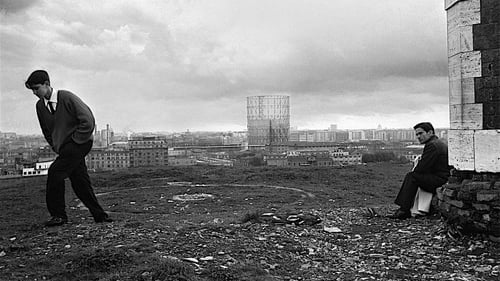
Writer
Несколько новелл о любви и насилии властителей дум молодёжи конца шестидесятых.

Director
Несколько новелл о любви и насилии властителей дум молодёжи конца шестидесятых.

Writer
The tragic and self-destructive sexual battle between a man and his wife. A drama for the desperate struggle of those who are different against the normality that rejects the margins. The couple is preparing to consume a relationship of extreme sadomasochism. Recorded theatre production.

Director
The tragic and self-destructive sexual battle between a man and his wife. A drama for the desperate struggle of those who are different against the normality that rejects the margins. The couple is preparing to consume a relationship of extreme sadomasochism. Recorded theatre production.

Screenplay
В богатом миланском доме все перевернулось вверх ногами, когда появился красивый незнакомец. Он вступает в сексуальные отношения со всеми членами семьи, а затем исчезает. У каждого есть свое предположение, но никто не может понять, кем был соблазнительный посетитель и почему он появился.

Director
В богатом миланском доме все перевернулось вверх ногами, когда появился красивый незнакомец. Он вступает в сексуальные отношения со всеми членами семьи, а затем исчезает. У каждого есть свое предположение, но никто не может понять, кем был соблазнительный посетитель и почему он появился.

Writer
A 1968 short documentary film by Pier Paolo Pasolini where he visits India in the search of a king who could give up his body to feed a starving tiger.

Self
A 1968 short documentary film by Pier Paolo Pasolini where he visits India in the search of a king who could give up his body to feed a starving tiger.

Director
A 1968 short documentary film by Pier Paolo Pasolini where he visits India in the search of a king who could give up his body to feed a starving tiger.
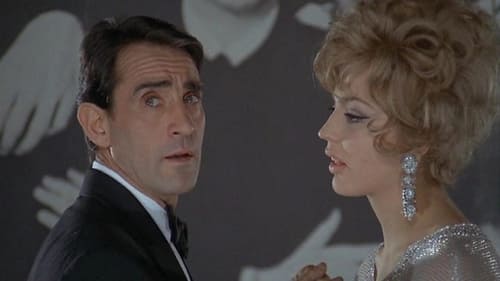
Writer
Фильм состоит из шести новелл, созданных разными режиссерами, но всех их объединяет одно: теплая ирония к текущим событиям.

Director
Фильм состоит из шести новелл, созданных разными режиссерами, но всех их объединяет одно: теплая ирония к текущим событиям.

Writer
Some puppets come to life in a theater with no windows. This time the puppets interpret William Shakespeare's Othello.

Director
Some puppets come to life in a theater with no windows. This time the puppets interpret William Shakespeare's Othello.
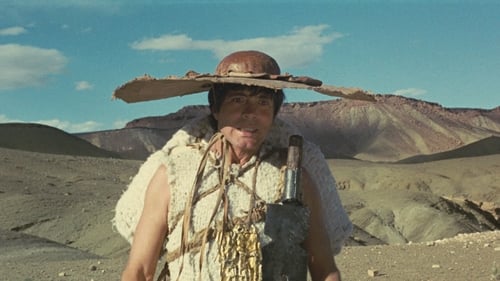
High Priest (uncredited)
Две сюжетные линии фильма протекают в современное время и древней Греции, перенося на экраны сюжет одноименной трагедии Софокла.

Writer
Две сюжетные линии фильма протекают в современное время и древней Греции, перенося на экраны сюжет одноименной трагедии Софокла.

Director
Две сюжетные линии фильма протекают в современное время и древней Греции, перенося на экраны сюжет одноименной трагедии Софокла.

Father Juan
Ребёнка, чудом выжившего после бандитского налёта на деревню, подбирает и принимает в свою семью протестантский пастор. Много лет спустя приёмыш становится одним из лучших стрелков Дикого Запада и узнаёт имя своего отца.
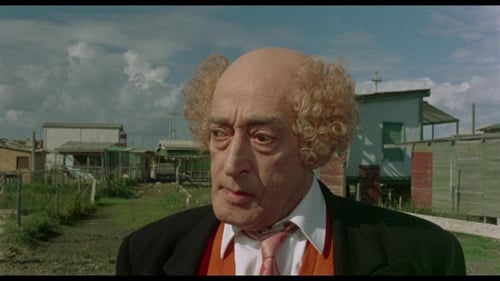
Story
Это коллекция из пяти независимых киноновелл, снятых пятью режиссерами — классиками итальянского кинематографа.

Screenplay
Это коллекция из пяти независимых киноновелл, снятых пятью режиссерами — классиками итальянского кинематографа.

Writer
Ciancicato Miao and his son, after the death of his wife and mother by mushroom poisoning, are dedicated to find her replacement and have no luck until they find a mysterious deaf mute green-haired woman.

Director
Ciancicato Miao and his son, after the death of his wife and mother by mushroom poisoning, are dedicated to find her replacement and have no luck until they find a mysterious deaf mute green-haired woman.

Director
Это коллекция из пяти независимых киноновелл, снятых пятью режиссерами — классиками итальянского кинематографа.

Self
In this documentary, giants of italian cinema such as Rossellini, De Sica, Fellini and Zavattini talk about the importance of cinema after WW2, and about huge moments of social rebellion. This movie gives the floor to the creators of italian neorealism.

Himself
Portrait of Pier Paolo Pasolini and his literary and cinematographic activity in the proletarian Rome.

Himself
Ezra Pound, an acclaimed modern American poet living in Rapallo, was tried for treason because of his radio broadcasts extolling Mussolini. This is Pasolini's interview with him.

Director
Ezra Pound, an acclaimed modern American poet living in Rapallo, was tried for treason because of his radio broadcasts extolling Mussolini. This is Pasolini's interview with him.
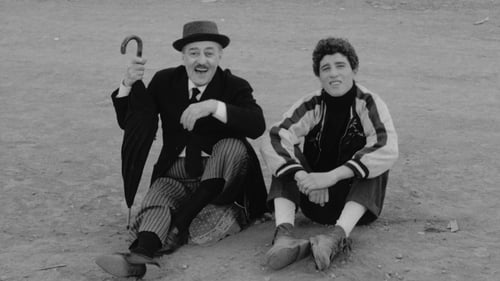
Story
Фильм снят в форме комедии и его можно смотреть людям любого возраста. Как пожилой, так и молодой, Тото и Нинетто сталкиваются с различными историческими ситуациями не конфликтуют между собой и находятся в полном согласии друг с другом…

Screenplay
Фильм снят в форме комедии и его можно смотреть людям любого возраста. Как пожилой, так и молодой, Тото и Нинетто сталкиваются с различными историческими ситуациями не конфликтуют между собой и находятся в полном согласии друг с другом…

Director
Фильм снят в форме комедии и его можно смотреть людям любого возраста. Как пожилой, так и молодой, Тото и Нинетто сталкиваются с различными историческими ситуациями не конфликтуют между собой и находятся в полном согласии друг с другом…

Writer
In 1963, accompanied by a newsreel photographer and a Catholic priest, Piero Paolo Pasolini traveled to Palestine to investigate the possibility of filming his biblical epic The Gospel According to Matthew in its approximate historical locations. Edited by The Gospel‘s producer for potential funders and distributors, Seeking Locations in Palestine features semi-improvised commentary from Pasolini as its only soundtrack. As we travel from village to village, we listen to Pasolini’s idiosyncratic musings on the teachings of Christ and witness his increasing disappointment with the people and landscapes he sees before him. Israel, he laments, is much too modern. The Palestinians, much too wretched; it would be impossible to believe the teachings of Jesus had reached these faces. The Gospel According to Matthew was ultimately filmed in Southern Italy. Mel Gibson would use some of the same locations forty years later for The Passion of the Christ.

Self (uncredited)
In 1963, accompanied by a newsreel photographer and a Catholic priest, Piero Paolo Pasolini traveled to Palestine to investigate the possibility of filming his biblical epic The Gospel According to Matthew in its approximate historical locations. Edited by The Gospel‘s producer for potential funders and distributors, Seeking Locations in Palestine features semi-improvised commentary from Pasolini as its only soundtrack. As we travel from village to village, we listen to Pasolini’s idiosyncratic musings on the teachings of Christ and witness his increasing disappointment with the people and landscapes he sees before him. Israel, he laments, is much too modern. The Palestinians, much too wretched; it would be impossible to believe the teachings of Jesus had reached these faces. The Gospel According to Matthew was ultimately filmed in Southern Italy. Mel Gibson would use some of the same locations forty years later for The Passion of the Christ.

Director
In 1963, accompanied by a newsreel photographer and a Catholic priest, Piero Paolo Pasolini traveled to Palestine to investigate the possibility of filming his biblical epic The Gospel According to Matthew in its approximate historical locations. Edited by The Gospel‘s producer for potential funders and distributors, Seeking Locations in Palestine features semi-improvised commentary from Pasolini as its only soundtrack. As we travel from village to village, we listen to Pasolini’s idiosyncratic musings on the teachings of Christ and witness his increasing disappointment with the people and landscapes he sees before him. Israel, he laments, is much too modern. The Palestinians, much too wretched; it would be impossible to believe the teachings of Jesus had reached these faces. The Gospel According to Matthew was ultimately filmed in Southern Italy. Mel Gibson would use some of the same locations forty years later for The Passion of the Christ.
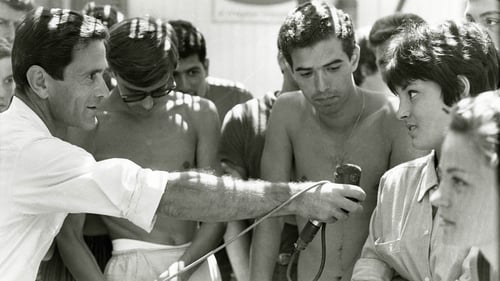
Self - Interviewer (uncredited)
Microphone in hand, Pier Paolo Pasolini asks Italians to talk about sex, apparently their least favorite subject: he asks children if they know where do babies come from, asks old and young women about gender equality, and asks both genders if a woman's virginity still matters, how do they view homosexuals, if sex and honor are related, if divorce should be legal, if they support the recent abolition of brothels, etc. He interviews workers, intellectuals, students, rural farmers, the bourgeoisie, and other different people, painting a vivid portrait of Italy in the years of the Economic Boom, suspended between modernity and tradition.

Director
Microphone in hand, Pier Paolo Pasolini asks Italians to talk about sex, apparently their least favorite subject: he asks children if they know where do babies come from, asks old and young women about gender equality, and asks both genders if a woman's virginity still matters, how do they view homosexuals, if sex and honor are related, if divorce should be legal, if they support the recent abolition of brothels, etc. He interviews workers, intellectuals, students, rural farmers, the bourgeoisie, and other different people, painting a vivid portrait of Italy in the years of the Economic Boom, suspended between modernity and tradition.
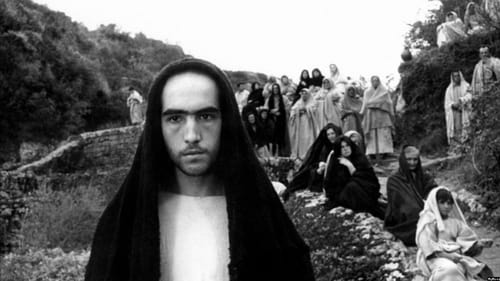
Writer
Фильм описывает жизнь Иисуса с марксистско-католической точки зрения режиссёра и является как одним из самых критикуемых, так и одним из самых известных исторических картин. Фильм считается очень правдивой экранизацией текста Библии, хотя Пьер Паоло Пазолини заявлял, что "... изображения никогда не смогут достичь поэтических высот текста". Для экранизации Пьер Паоло Пазолини выбрал Евангелие от Матфея, потому, что посчитал, что Евангелие от Иоанна слишком мистическое, от Марка — слишком вульгарное, от Луки — слишком сентиментальное.

Director
Фильм описывает жизнь Иисуса с марксистско-католической точки зрения режиссёра и является как одним из самых критикуемых, так и одним из самых известных исторических картин. Фильм считается очень правдивой экранизацией текста Библии, хотя Пьер Паоло Пазолини заявлял, что "... изображения никогда не смогут достичь поэтических высот текста". Для экранизации Пьер Паоло Пазолини выбрал Евангелие от Матфея, потому, что посчитал, что Евангелие от Иоанна слишком мистическое, от Марка — слишком вульгарное, от Луки — слишком сентиментальное.
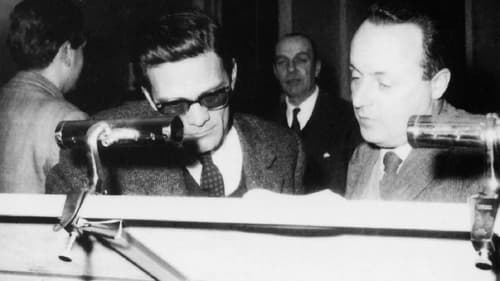
Writer
Начиная с совершенно разных позиций, Пазолини и Гуарески пытаются посредством монтажного фильма дать ответ на один из важнейших вопросов человеческого существования: почему наша жизнь отмечена недовольством и страхом? И Пазолини, и Гуарески в ответ субъективно комментируют кинематографические и фотодокументы послевоенного периода, такие как эпизоды советской интервенции в Венгрии, убийство Лумумбы, независимость Танганьики, израильское нападение на Египет, подъем власть Кастро на Кубе, Ава Гарднер в Риме и Софи Лорен в Полесине, коронация английской королевы Елизаветы, избрание Эйзенхауэра, де Голля у власти, независимость Алжира, смерть Мэрилиб Монро, бегство Гагарина в околоземной орбиты с триумфальным возвращением на землю. Пазолини черпает нашу боль в гнусных действиях западного общества, а Гуарески пытается ее защитить, видя в ней надежду на будущее.

Editor
Начиная с совершенно разных позиций, Пазолини и Гуарески пытаются посредством монтажного фильма дать ответ на один из важнейших вопросов человеческого существования: почему наша жизнь отмечена недовольством и страхом? И Пазолини, и Гуарески в ответ субъективно комментируют кинематографические и фотодокументы послевоенного периода, такие как эпизоды советской интервенции в Венгрии, убийство Лумумбы, независимость Танганьики, израильское нападение на Египет, подъем власть Кастро на Кубе, Ава Гарднер в Риме и Софи Лорен в Полесине, коронация английской королевы Елизаветы, избрание Эйзенхауэра, де Голля у власти, независимость Алжира, смерть Мэрилиб Монро, бегство Гагарина в околоземной орбиты с триумфальным возвращением на землю. Пазолини черпает нашу боль в гнусных действиях западного общества, а Гуарески пытается ее защитить, видя в ней надежду на будущее.

Director
Начиная с совершенно разных позиций, Пазолини и Гуарески пытаются посредством монтажного фильма дать ответ на один из важнейших вопросов человеческого существования: почему наша жизнь отмечена недовольством и страхом? И Пазолини, и Гуарески в ответ субъективно комментируют кинематографические и фотодокументы послевоенного периода, такие как эпизоды советской интервенции в Венгрии, убийство Лумумбы, независимость Танганьики, израильское нападение на Египет, подъем власть Кастро на Кубе, Ава Гарднер в Риме и Софи Лорен в Полесине, коронация английской королевы Елизаветы, избрание Эйзенхауэра, де Голля у власти, независимость Алжира, смерть Мэрилиб Монро, бегство Гагарина в околоземной орбиты с триумфальным возвращением на землю. Пазолини черпает нашу боль в гнусных действиях западного общества, а Гуарески пытается ее защитить, видя в ней надежду на будущее.

Screenplay
Четыре рассказа четырех авторов, которые весело рассказывают о причинах конца света. Название фильма — это сокращения от фамилий четырех режиссеров, участвовавших в создании фильма — РО(сселини) — ГО(дар) — ПА(золини) — Г(регоретти).
Новелла «Овечий сыр (La ricotta)» Пьера Паоло Пазолини итальянскими властями была расценена как оскорбляющая государственную религию (католицизм) и режиссёр, по решению суда, был осуждён на 4 месяца заключения, которого удалось избежать уплатив штраф. Позднее апелляционным судом данное обвинение было снято с Пазолини.

Director
Четыре рассказа четырех авторов, которые весело рассказывают о причинах конца света. Название фильма — это сокращения от фамилий четырех режиссеров, участвовавших в создании фильма — РО(сселини) — ГО(дар) — ПА(золини) — Г(регоретти).
Новелла «Овечий сыр (La ricotta)» Пьера Паоло Пазолини итальянскими властями была расценена как оскорбляющая государственную религию (католицизм) и режиссёр, по решению суда, был осуждён на 4 месяца заключения, которого удалось избежать уплатив штраф. Позднее апелляционным судом данное обвинение было снято с Пазолини.
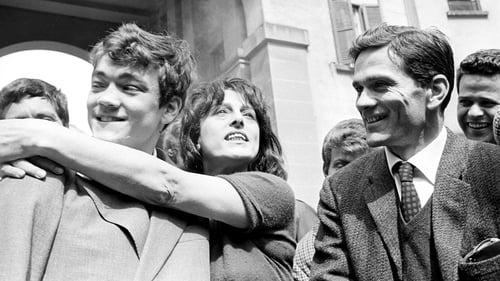
Story
Бывшая проститутка по прозвищу «Мама Рома» (Анна Маньяни) пытается начать новую жизнь. Она торгует овощами, в чём ей помогает её шестнадцатилетний сын Этторе (Этторе Гарофало). Однако все старания женщины оказываются напрасными, когда Этторе узнаёт, что его мать была проституткой. Он совершает кражу и попадает в тюрьму, что означает, что надежды его матери на лучшую жизнь для сына потерпели крах…

Screenplay
Бывшая проститутка по прозвищу «Мама Рома» (Анна Маньяни) пытается начать новую жизнь. Она торгует овощами, в чём ей помогает её шестнадцатилетний сын Этторе (Этторе Гарофало). Однако все старания женщины оказываются напрасными, когда Этторе узнаёт, что его мать была проституткой. Он совершает кражу и попадает в тюрьму, что означает, что надежды его матери на лучшую жизнь для сына потерпели крах…

Director
Бывшая проститутка по прозвищу «Мама Рома» (Анна Маньяни) пытается начать новую жизнь. Она торгует овощами, в чём ей помогает её шестнадцатилетний сын Этторе (Этторе Гарофало). Однако все старания женщины оказываются напрасными, когда Этторе узнаёт, что его мать была проституткой. Он совершает кражу и попадает в тюрьму, что означает, что надежды его матери на лучшую жизнь для сына потерпели крах…
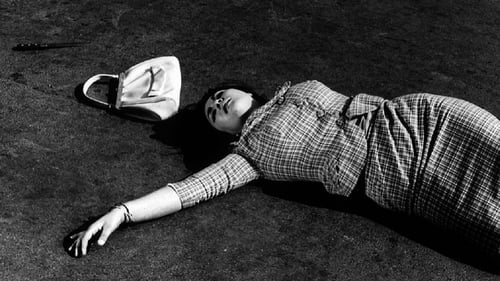
Story
Жуткая криминальная драма об убийстве проститутки. Эта история рассказывается как бы тремя разными людьми, балансируя на грани реального и нереального.
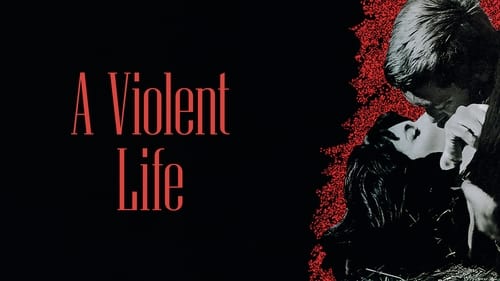
Novel
Tommaso Puzzilli is a boy who grew up in the suburb of Pietralata outside Rome. Not having a job, Tommaso and his friends are committing crimes to make money.
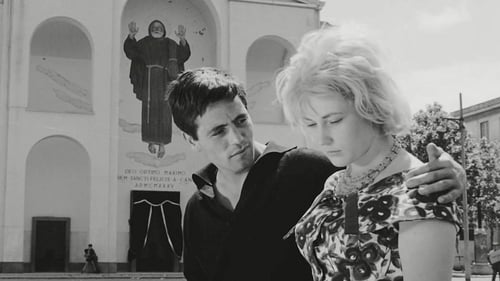
Story
Витторио Аккатоне — сутенёр из Рима. Единственным способом, которым он зарабатывает деньги, является проститутка Маддалена. Однако её арестовывают, и у Витторио наступает чёрная полоса. Сначала он распродаёт своё имущество: «золото», машину. Но и этого не хватает — он превращается в настоящего нищего бродягу...

Screenplay
Витторио Аккатоне — сутенёр из Рима. Единственным способом, которым он зарабатывает деньги, является проститутка Маддалена. Однако её арестовывают, и у Витторио наступает чёрная полоса. Сначала он распродаёт своё имущество: «золото», машину. Но и этого не хватает — он превращается в настоящего нищего бродягу...

Director
Витторио Аккатоне — сутенёр из Рима. Единственным способом, которым он зарабатывает деньги, является проститутка Маддалена. Однако её арестовывают, и у Витторио наступает чёрная полоса. Сначала он распродаёт своё имущество: «золото», машину. Но и этого не хватает — он превращается в настоящего нищего бродягу...
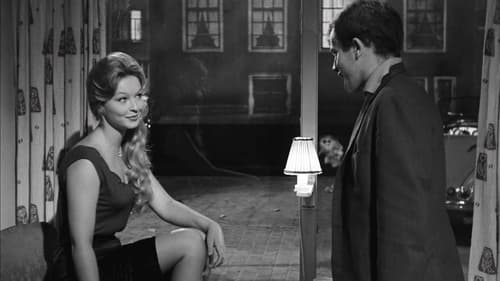
Screenplay
A romantic drama partially set in Amsterdam, this standard tale starts out in a mining area in Holland where conditions are about as rough as they get. Two of the miners, Italians Federico and Vincenzo take off together for the city's red-light district, where the women pose in windows for prospective customers. There the duo meet Else and Carrel who are willing to leave their windows to spend a weekend at a resort with the two men. Soon Else has fallen in love with Vincenzo and the future of the two hookers, as well as the miners, seems to look brighter.

Writer
A group of young thugs decides to spend New Year on the streets of Milan.
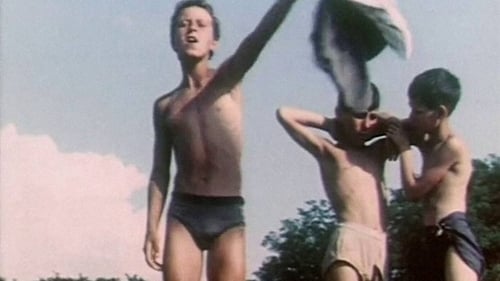
Writer
On a hot summer day, a group of boys of the Roman suburbs play and laugh in one of the many rivers that surround the city. The camera scrutinizes them, approaches them, reveals the gestures and glances, wraps them in a sort of visual dance, while the words of the commentary (entrusted to the poetic sensibility of Pier Paolo Pasolini) narrate the stories, desires, dreams, the future.
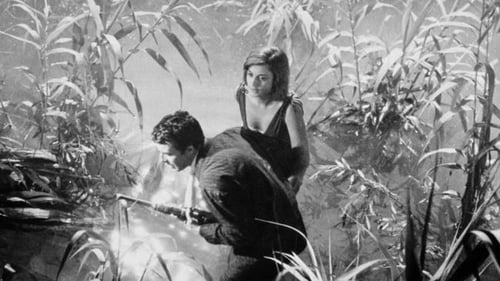
Monco
За голову Альваро Козенцы, известного как Горбун из Квартиччолы, нацисты назначили огромную сумму денег, а сам герой Сопротивления скрывался в доме своей возлюбленной Нинетты, дочери агента политической полиции. Но долго так продолжаться не могло, и Горбун попал в руки фашистов. Однако, ему удалось бежать, убив при этом отца Нинетты. После этого прежних отношений между молодыми людьми быть уже не могло. Тем временем, Рим освобожден союзниками, Нинетта превратилась в отверженную из-за прошлого своего отца, а Альваро оказался на распутье. Не видя разницы между немецкими и американскими оккупантами, он решает продолжить свою, теперь уже бессмысленную, борьбу. Расстреляв военный патруль, Горбун превращается в преследуемого военными и гражданскими властями бандита, но единственное, что на самом деле еще интересует его в жизни — это Нинетта, вернуть любовь которой он хочет любой ценой…

Writer
A unique documentary on the traditional dirge in Griko, an ancient language of Salento.
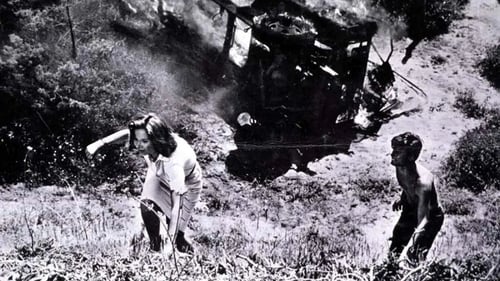
Screenplay
The ironic study of a young man's poignant adventures and sensual adventures...based on "Roman Tales" by Alberto Moravia.

Screenplay
Italy signed the armistice and in the general confusion a corporal decides to bring the tank back from the coast to the barracks.
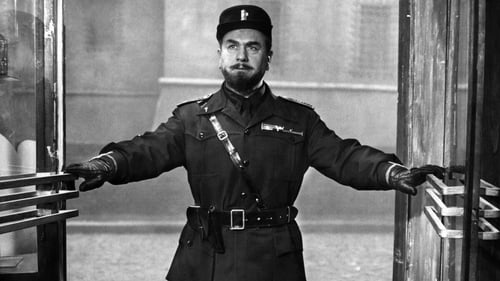
Screenplay
Италия, осень 1943 года. Молодая симпатичная женщина Анна работает кассиром в аптеке города Феррара, принадлежащей её мужу Пино Барилари. Личная жизнь у Анны отсутствует, так как фактически она выполняет функцию сиделки при своём супруге-инвалиде. В неё влюблён коллега по работе, но женщина не обращает на аптекаря никакого внимания. Однажды Анна решает пойти в кино. Показ фильма прерывается сиренами, извещающими о воздушной тревоге. Вспыхивает свет и Анна видит среди зрителей Франко, своего давнего знакомого, с которым она не общалась уже много лет.
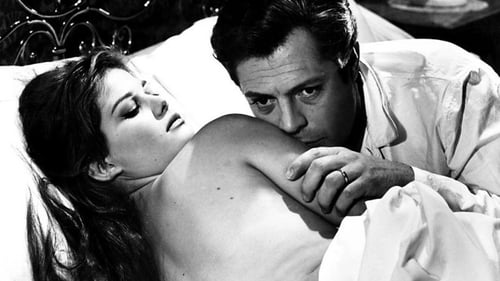
Screenplay
Женщины любят красавчика Антонио, считая его идеальным любовником. Но у него есть проблемы с соответствием этому идеалу, о которых Барбара узнаёт после замужества. Она посвящает в это весь городок и все начинают над ним насмехаться…
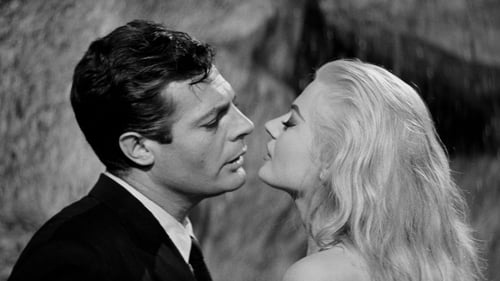
Screenplay
Журналист Марчелло — наблюдатель и участник всех эпизодов жизни итальянской элиты конца 50-х годов. Женщины как тени сменяют друг друга, не задевая его чувств, даже явление американской кинодивы Сильвии, воплощения сексуальности и порока, не выводит его из ступора. Внезапное самоубийство его друга Штайнера, пришедшего к мысли о бессмысленности их жизни, приводит Марчелло к катарсису, но надолго ли…

Story
Two young people trickle, steal and exploit prostitutes.

Writer

Self
A four-part documentary series about the Italian director Federico Fellini. Episode 1: His Childhood, His Beginnings; Episode 2: His First Films; Episode 3: His Films with Giulietta Masina; Episode 4: "La dolce vita" and Neorealism.
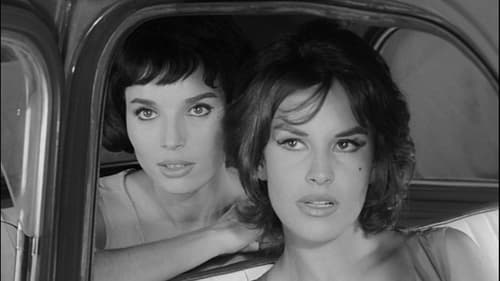
Screenplay
Двое молодых шустрил отчаянно ищут возможности сбыть краденое, а затем, получив деньги, стараются нескучно провести время.

Novel
Двое молодых шустрил отчаянно ищут возможности сбыть краденое, а затем, получив деньги, стараются нескучно провести время.

Writer

Screenplay
In a small Italian town, the local youngsters realize that their youth is coming to an end and marriage will soon follow. They gather together for one last time in an attempt to revive their younger days, but this comes to a dismal conclusion. Gradually it dawns on the group that childhood is over and the next stage in human growth must be faced.

Writer
The life, the problems, the hopes of the ragazzi of the suburbs of Rome. Ignored by the city, these young men spontaneously express their vitality, their violence, their willingness to put themselves at risk. They are at the center of "Ragazzi di vita", the first novel by Pier Paolo Pasolini, author of the text of this documentary.
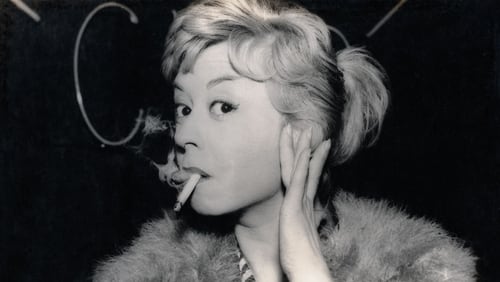
Screenplay
Проститутка Кабирия, работающая в одном из самых дешевых районов Рима, как и все её подруги вульгарна, грязна, драчлива, остра на язык. Но вопреки своей древней и циничной профессии, она по-детски наивна и добра, с маниакальным упорством надеется найти мужчину своей мечты и стать честной женщиной. Её сердце жаждет любви, но мир жесток…
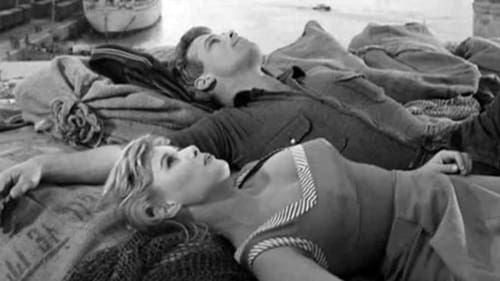
Screenplay
Для 17-летней Маризы не существует иного дома, кроме железнодорожной станции в Чивитавеккья. Здесь рано осиротевшая девушка живет после смерти отца-железнодорожника, здесь подрабатывает в вокзальном буфете, продавая мороженое пассажирам проходящих поездов. Красивая и бойкая, она привыкла к восхищению окружающих и в совершенстве овладела искусством кокетства, однако сердце Маризы остается спокойным до той поры, пока солнечным воскресным утром не сходит с поезда на перрон молодой матрос Анджело, спешащий на свой первый рейс.

Story
Для 17-летней Маризы не существует иного дома, кроме железнодорожной станции в Чивитавеккья. Здесь рано осиротевшая девушка живет после смерти отца-железнодорожника, здесь подрабатывает в вокзальном буфете, продавая мороженое пассажирам проходящих поездов. Красивая и бойкая, она привыкла к восхищению окружающих и в совершенстве овладела искусством кокетства, однако сердце Маризы остается спокойным до той поры, пока солнечным воскресным утром не сходит с поезда на перрон молодой матрос Анджело, спешащий на свой первый рейс.

Writer
At the end of the war, he was hired by Edison and in 1951 he made a film on all the important hydroeletrical plants built in that period. In the following years, Olmi directed around 40 documentaries, including La diga del ghiacciaio, Pattuglia di Passo San Giacomo, Tre fili fino a Milano, Michelino 1aB (written by Goffredo Parise), Manon finestra 2 and Grigio (whose screenplay was written by Pier Paolo Pasolini).

Writer
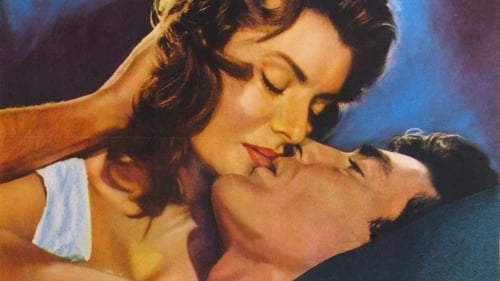
Dialogue
When peasant girl Nives is deserted by smuggler Gino Lodi, she betrays him to the police. Police officer Enzo Cinti, who loves Nives, traces her to the Po River cane-fields, where she is working as a cutter to support herself and an infant son, and warns her that Gino has escaped from prison and is seeking revenge. She rejects his offer to protect her. Gino finds Nives, mourning the drowning death of their son. He surrenders himself to the police and then walks at Nives' side in the funeral procession.

Screenplay
When peasant girl Nives is deserted by smuggler Gino Lodi, she betrays him to the police. Police officer Enzo Cinti, who loves Nives, traces her to the Po River cane-fields, where she is working as a cutter to support herself and an infant son, and warns her that Gino has escaped from prison and is seeking revenge. She rejects his offer to protect her. Gino finds Nives, mourning the drowning death of their son. He surrenders himself to the police and then walks at Nives' side in the funeral procession.

Author
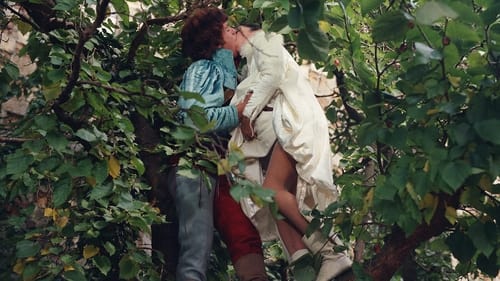
Writer
Pier Paolo Pasolini's controversial medieval Trilogy of Life includes The Decameron (1971), The Canterbury Tales (1972) and Arabian Nights (1974).

Director
Pier Paolo Pasolini's controversial medieval Trilogy of Life includes The Decameron (1971), The Canterbury Tales (1972) and Arabian Nights (1974).

Writer
In the spring of 1970, between the African Orestiade and The Decameron, Pasolini shot a film for which he wrote a commentary in verses but never finished editing. The film was born as a typical Pasolini intervention: filming the strike of the garbage collectors in Rome, who at the time worked in dramatic health conditions, and filming the humility of their daily work, amidst the waste and scraps of society, in the squares and in the streets. Pasolini also filmed the faces of garbage collectors engaged in claims discussions and the result was an extraordinary anthropological picture of an unknown humanity.

Director
In the spring of 1970, between the African Orestiade and The Decameron, Pasolini shot a film for which he wrote a commentary in verses but never finished editing. The film was born as a typical Pasolini intervention: filming the strike of the garbage collectors in Rome, who at the time worked in dramatic health conditions, and filming the humility of their daily work, amidst the waste and scraps of society, in the squares and in the streets. Pasolini also filmed the faces of garbage collectors engaged in claims discussions and the result was an extraordinary anthropological picture of an unknown humanity.
